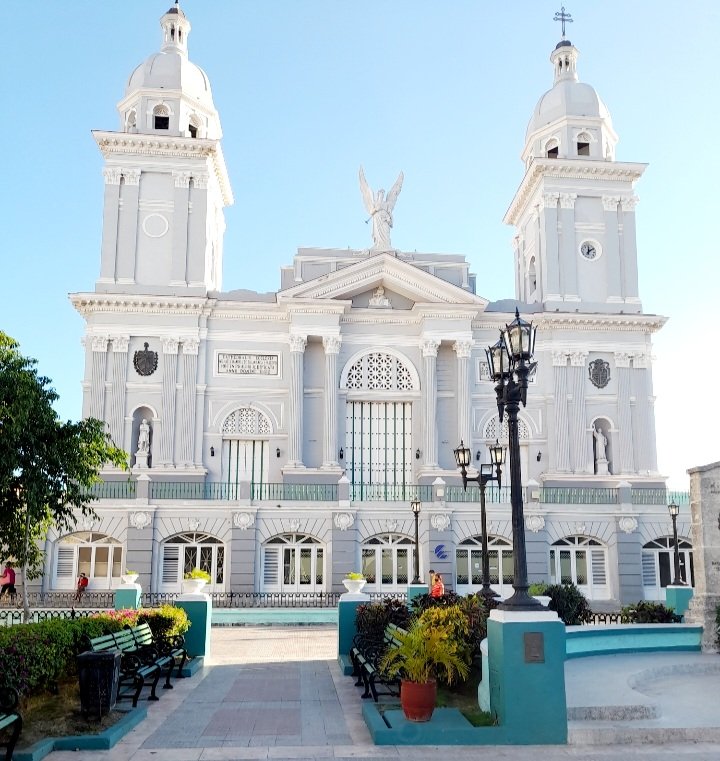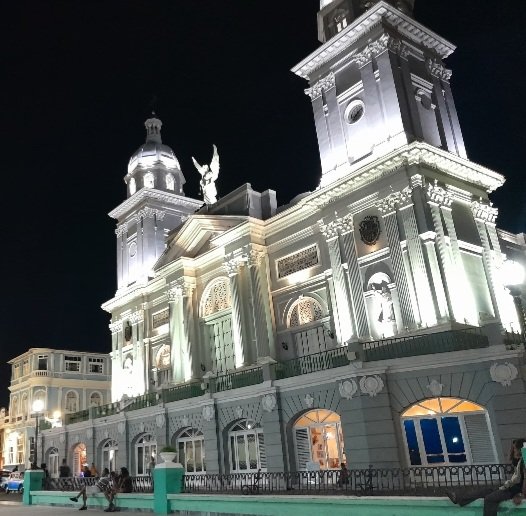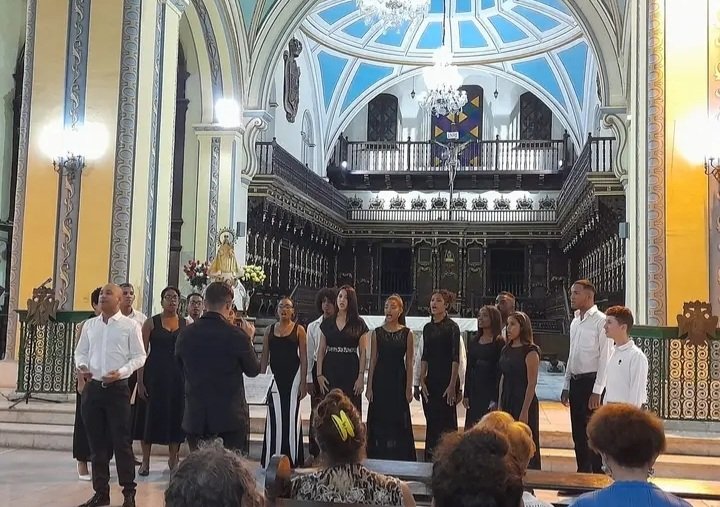Oficialmente conocida como la Catedral de Nuestra Señora de la Asunción, la Catedral de Santiago de Cuba, es una de las edificaciones religiosas más importantes y emblemáticas de la ciudad. Situada en el Parque Céspedes (hablaremos de este en otro post), esta iglesia es un símbolo de la historia y la cultura de Santiago de Cuba.

Su construcción data del siglo XVI, específicamente en 1522, sufriendo varias remodelaciones y ampliaciones a lo largo de los años debido a terremotos y otros eventos. La estructura actual refleja una mezcla de estilos arquitectónicos, predominando el neoclásico y el barroco.
Destaca por su impresionante fachada, que presenta una serie de columnas y detalles ornamentales. En ella podemos encontrar hermosos altares, vitrales y obras de arte religioso. Uno de los aspectos más notables es su altar mayor, que alberga una imagen de la Virgen de la Asunción, patrona de la catedral.

Además de su función religiosa, la Catedral de Santiago de Cuba es un importante centro cultural. A lo largo de los años, ha sido escenario de ceremonias significativas, incluyendo bodas, bautizos, celebraciones litúrgicas y numerosos eventos, cabe destacar que en ella brindó su primer concierto el Coro Vox Lucis, agrupación a la que pertenezco. Cuenta en su espacio con el Museo Arquidiocesano, sitio donde puedes apreciar obras de alto valor e importancia histórica como el Ecce Homo del Pintor Colombiano Francisco Antonio Cano. También es un lugar de interés turístico, atrayendo a visitantes de gran parte del mundo.

La Catedral no solo es un lugar de culto, sino también un símbolo del patrimonio histórico y cultural de la ciudad. Su belleza arquitectónica y su rica historia la convierten en un punto destacado para quienes visitan Santiago de Cuba.

*Las fotos usadas son de mi propiedad y de libre uso para las personas del Coro Vox Lucis.
Officially known as the Cathedral of Our Lady of the Assumption, the Cathedral of Santiago de Cuba is one of the most important and emblematic religious buildings in the city. Located in Céspedes Park (we will talk about this in another post), this church is a symbol of the history and culture of Santiago de Cuba.

Its construction dates back to the 16th century, specifically in 1522, undergoing several renovations and extensions over the years due to earthquakes and other events. The current structure reflects a mix of architectural styles, with neoclassical and baroque predominating.
It stands out for its impressive façade, which features a series of columns and ornamental details. In it we can find beautiful altars, stained glass windows and works of religious art. One of the most notable aspects is its main altar, which houses an image of the Virgin of the Assumption, patron saint of the cathedral.

In addition to its religious function, the Cathedral of Santiago de Cuba is an important cultural center. Over the years, it has been the scene of significant ceremonies, including weddings, baptisms, liturgical celebrations and numerous events. It is worth noting that the Vox Lucis Choir, a group to which I belong, gave its first concert there. It has the Archdiocesan Museum in its space, a place where you can appreciate works of high value and historical importance such as the Ecce Homo by the Colombian painter Francisco Antonio Cano. It is also a tourist attraction, attracting visitors from much of the world.

The Cathedral is not only a place of worship, but also a symbol of the city's historical and cultural heritage. Its architectural beauty and rich history make it a highlight for those visiting Santiago de Cuba.

*The photos used are my property and free to use for the people of the Vox Lucis Choir.


